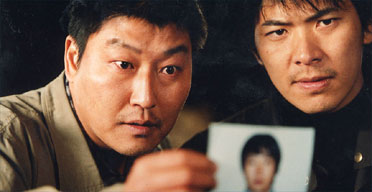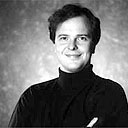Seraing is a down-at-heel steel town that is effectively a suburb of Liège, in eastern Belgium. It has an unemployment rate of about 25%, and most of its smelting furnaces and rolling mills have closed down, although two chimneys on the banks of the Meuse still belch out sulphurous yellow fumes.
In the lower town, at the foot of a hill, conveyor belts and ramps hang over canyons of disused factory walls, and a drab red-light district glows with more of a chemical purple and blue. It's the last place on earth you'd expect to inspire great cinema; even Jean-Pierre and Luc Dardenne, who grew up and continue to work here, admit: "It's rather gloomy - not a fun place."
Yet against all odds, Seraing has inspired the Dardenne brothers for more than 20 years as film-makers, and most recently produced a world-class feature, the surprise outsider at Cannes last year. Their film Rosetta hit Cannes like an unaccustomed bombshell of real cinema. Its kinetic, morally tough, no-frills realism won not only the Palme d'Or, but a shared best actress prize for Emilie Dequenne, aged 17 when she won the award in May last year, as a taciturn girl living on a campsite with an alcoholic mother, and doggedly battling through a succession of no-hope jobs.
It seems the ultimate Cannes fairy tale, and with a new brotherly duo for the press to file alongside the Coens, Tavianis, Farrellys, Wachowskis et al. But the Dardennes are no fresh-faced debutants. They are in their mid- to late 40s and have been making films since the 70s, although the world only heard of them four years ago when their feature La Promesse (The Promise) got them on the festival circuit for the first time.
But it's no accident they have been Belgium's best-kept secret: they're none too anxious to sell themselves. Jean-Pierre, the older brother, says of the post-Cannes press attention, "I find it all a bit pornographic. I don't like talking that much, explaining why I do this, why I do that - it goes against my nature." Both confess they tend to be afflicted by doubt and find it emotionally difficult to get films made.
The brothers have an office in a stately, austere building by the river in central Liège. It's home to two companies, their feature outlet, Les Films du Fleuve, and Dérives, their video workshop, which produces half a dozen documentaries a year by other film-makers. Until recently, Jean-Pierre ran an audio-visual workshop at Liège university, while Luc still teaches screenwriting in Brussels, where he lives. It's a tight family set-up: Jean-Pierre's wife is also their set photographer.
The general assumption with siblings in film - especially if they're this reclusive - is that they must be desperately weird, but the Dardennes seem as normal as you can get. Luc is chattier, Jean-Pierre more solemn, and they're a little spiky with each other. When I arrive, Luc, the more dapper of the pair, is grumbling about a doctor's appointment he thinks he might miss, and there's a testy altercation over one of my questions. "No, what he's saying..." Luc begins to explain. "No, I understand what he's saying," mutters the burlier Jean-Pierre, who has a slight look of Ronnie Biggs. But they muster up sandwiches and coffee, and are genial as can be.
When they began making films, their work was strictly a local concern. Although neither brother ever belonged to a political party, they started making videos as a form of direct action. "We didn't think of ourselves as film-makers," Luc says. "We went to local housing estates, strikes, factories, trying to do political work, making interventions as film-makers. We thought: people don't know each other, no one knows who's living next to them, so we'll make portraits of people and show them on Sundays in a garage or a cafe. People would see them and think, 'Oh look, there's old what's-his-name.' We tried to form bonds between people."
In a sense, they're still making community portraits. Rosetta and its predecessor, La Promesse - about a teenage boy whose slum landlord father ruthlessly exploits illegal immigrants - have the hardened edge of reality about them. The term "gritty" has never been more apposite, but the Dardennes insist they aim for realism, not naturalism. "Naturalism," Jean-Pierre explains, "is something picturesque, like a historical TV mini-series - it's when you pile on the details. We call our cinema 'realism' because it's inspired by the everyday world we live in."
"Our realism," says Luc, "is stripped down to the bone. We try and take away as much as we can and keep what's really significant." Everything comes directly from Seraing, Luc says. "When we're writing, we immediately see the streets, the houses, the people - even if they don't exist any more, because much of the town has disappeared. It's a sort of womb for us - we like to dive back into it when we're working on a character."
They're not in a hurry to turn their attention to the outside world. "It might seem weird, but we're not great travellers," Jean-Pierre admits. Luc adds, "We need a place where we can sweat it out - a sort of sauna. If we were anywhere else, we'd have to recreate that sort of closed space for ourselves." But, Jean-Pierre speculates, "it could be the Seraing in our heads doesn't actually have that much to do with the real one. We grew up here so the place inhabits us, in a way."
The brothers are no spoilt bourgeois scions moonlighting with tales of the hard-scrabble life. Sons of a factory draughtsman, they've struggled throughout their career. Originally working for theatre and film director Armand Gatti, they were inspired by him to do their own work; and to raise money for their first equipment, both worked as labourers on a nuclear plant. For years, they were absolute outsiders: when I ask how they were seen by other Belgian directors, they reply, "We weren't."
Later, when their second fiction feature was a flop, they ran up enormous debts, which took years to pay off. Even a Palme d'Or, they emphasise, hardly means they're raking it in, especially since they're slow workers and it may be a long time before they complete their next film. Cannes success has, however, made a difference in other ways: received by both public and media as a national triumph, Rosetta also inspired the passing of a bill, known as the "Plan Rosetta", that aims to protect the interests of young, low-paid workers.
In the 80s, the brothers clocked up several documentaries, on topics ranging from the Walloon resistance movement to Polish emigration. But their start in fiction was difficult. They started tentatively by adapting a play, Falsch, in 1986. The follow-up, Je Pense à Vous, six years later, about a steelworker who loses his job, was a disaster - and not only commercially.
They were out of their depth, they admit. "We're always stressed when we shoot, and that can be good, but on that film, it was negative stress. We were afraid of our own fear." They still sound shell-shocked talking about it. They didn't know their own minds, and ended up being dominated by their director of photography. "We learned that what happens on set is a power struggle," says Jean-Pierre. "If they know you're afraid, you're screwed."
Left with nothing to lose, they realised they needed to be in charge on La Promesse. "Deciding that we'd be responsible for the work every day, from eight in the morning to six at night, it got us moving on our own track." Putting together a team they were comfortable with, they returned to the way they'd started out, with Jean-Pierre supervising photography and editing and Luc overseeing the sound.
The brothers like the viewer to be part of the collaborative process. Theirs is not a realism that lays down the law and shows you how the world is: you have to find your own way in it. Hence the telegraphic, sketchy nature of their narratives, which let us work out for ourselves who these characters are and where they've been. "We're interested in telling stories that happen in the present, and the backstory is something the viewer constructs. If you put it there on the screen, the present becomes nothing more than the consequence of the past. But because certain things stay in the shadows, you feel things are happening in the present - you have to have shadow to have light."
The Dardennes' latter features are exciting, athletic films in which space feels like an obstacle course to be negotiated at some peril - the treacherous building sites of La Promesse, the mud-steeped, inhospitable trailer park where Rosetta lives. The films' ragged feel makes it seem as if they fell into shape by accident, but the brothers are sticklers for working out timing and positioning. On Rosetta, they even devised a system of poking the actors with rods to nudge them into place. You clearly need to be in shape to make a film like Rosetta, set in inclement weather with key scenes by a filthy lake.
The brothers crack up laughing, thinking of technicians coming a cropper during fast manoeuvres: "There were a few casualties." Most notable is the final scene, a marathon five-minute single take, in which Emilie Dequenne struggles with a hefty gas canister, herself apparently at physical breaking point. "We did let out five kilos of gas - it weighed 13 kilos rather than 18."
Dequenne was selected for more than her ability to heave canisters. Her performance, exuding traumatically repressed fury, absolutely merits the Cannes award. An unknown who had done some local theatre and taken elocution lessons, Dequenne was chosen from 300 applicants.
The brothers were amused by her letter - "wildly pretentious", they say, still smiling at her chutzpah - but immediately knew they had their Rosetta when she acted out a chunk of the script. The performance is all the more astounding in that Dequenne clearly isn't the film's stubbornly uncommunicative feral child, but - when I briefly met her last year - an articulate and rather glamorous young woman who clearly has her showbiz future sorted out. She's now living in Paris and due to appear in her first costume drama.
After the interview, Luc returns to Brussels, while Jean-Pierre takes me to Seraing to show me one of their key locations - a shabby, grey bus depot where Rosetta works at a waffle van. There's not much to see - just a boarded-up pizza restaurant tucked away beneath a crumbling network of brutalist flyovers, all looking even smaller and dingier than it does on screen.
Further into Seraing, Jean-Pierre points out a row of shops. Rosetta walked up the street, he explains, and Igor, hero of La Promesse, walked down it: they were just shot from different angles. A portly character in a mouldy-looking fur cap emerges from a nearby house. Jean-Pierre waits till he's gone, then explains that he was the original model for the slum landlord in La Promesse.
Seraing wouldn't seem to be the most fertile terrain for a filmic fictional world, yet the Dardennes seem to have teased their entire imaginative universe out of it. There are, as they say, a million stories in the naked city - and cities don't come any more naked than this.


